Speakers & Sessions
Topics include fiber-reinforced polymer, materials and sustainable concrete construction, and more.

Antonio Nanni, PhD, PE
ACI’S 100TH PRESIDENT
Presentation: Highlights on CODE-440.11-22: Building Code Requirements for Structural Concrete Reinforced with Glass Fiber-Reinforced Polymer (GFRP) Bars
The challenges of steel reinforcement corrosion in concrete elements exposed to aggressive environments, the need for more sustainable and resilient structures, and the advances in composite manufacturing as well the availability of new experimental evidence have prompted the development of a new ACI Building Code addressing the design and construction of reinforced concrete (RC) elements using internal glass fiber-reinforced polymer (GFRP) bars. This presentation provides some insights in ACI CODE-440.11-22, “Building Code Requirements for Structural Concrete Reinforced with GFRP Bars.” This Code is dependent on ACI 318-19 and mandates minimum requirements for materials, design, and detailing of structural concrete buildings reinforced with GFRP bars that conform to ASTM D7957.
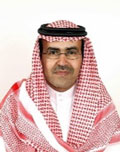
Mohammed Al Mehthel
Mohammed Al Mehthel received his BS and master’s degree in civil engineering from King Fahd University of Petroleum and Minerals, Dhahran, Saudi Arabia. He is currently a Principal Engineer at Saudi Aramco. He has more than 35 years of experience in the fields of engineering consultations, design, construction, and project management. He has 30 granted U.S. patents and more than 30 publications in local, regional, and international journals and events. He is Chair of the Steering Committee of NEx: An ACI Center of Excellence for Nonmetallic Building Materials in the United States and a Task Force member in the Nonmetallic Center of Excellence (NEXCEL) in China.
Presentation: Sustainable Construction Materials
This presentation will focus on how engineers and consultants can promote sustainability and a lower carbon footprint, and conserve natural resources by specifying concrete ingredients and construction methods.
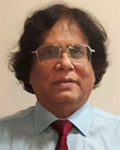
Muhammad K. Rahman, PhD
ACI member Muhammad K. Rahman, Vice President of the ACI Saudi Arabian Eastern Province Chapter, is a Research Engineer (Associate Professor) of Interdisciplinary Research Center for Construction and Building Materials at King Fahd University of Petroleum & Minerals (KFUPM), Dhahran, Saudi Arabia. He received his master’s degree from the University of California, Berkley, Berkeley, CA, USA, and his PhD from KFUPM. His research interests include non-metallic reinforcement in concrete structures, fire tests on glass fiber-reinforced polymer (FRP) bar-reinforced concrete elements, seawater and sea sand concrete, carbon FRP strengthening of steel and concrete structures, nanomaterials in concrete, cementing of oil wells, energy conservation in buildings, buried pipelines for hydrocarbon transport, finite element analysis and modeling and condition assessment of concrete structures. Rahman has conducted client-funded projects worth more than SR 20 million and served as Project Manager/Principal Investigator for more than 20 research projects in the recent years. He is actively involved in supervising MS and PhD research and teaches a number of subjects at undergraduate and graduate levels, including advanced concrete design and steel structure analysis, design of tall buildings, and repair and rehabilitation of concrete structures. Rahman has written more than 150 papers in refereed journals and conferences and has been granted 15 patents in various areas.
Presentation: Fiber-Reinforced Polymer (FRP) Bars for Durable Concrete Infrastructures
The corrosion of embedded reinforcing steel in concrete infrastructures is a critical issue leading to degradation and expensive maintenance globally, and to a greater extent in Saudi Arabia. To address the durability challenges, glass fiber-reinforced polymer (GFRP) bars have emerged as a promising alternative to traditional steel reinforcement. The corrosion resistance, lighter weight, and high tensile strength of GFRP bars have provided an impetus towards their substitution for steel in concrete infrastructures. Despite the higher initial cost, the use of GFRP bars results in lower overall life-cycle costs due to significantly reduced maintenance expenses. This presentation will focus on the exploration of GFRP bars in concrete infrastructures, encompassing advancements, applications, benefits, and challenges. It will highlight research conducted at King Fahd University of Petroleum and Minerals in this area. The applications of GFRP bars in concrete infrastructures—including bridge superstructures, marine structures, industrial buildings, and storage tanks—will be presented, highlighting their potential and benefits for the industry. Additionally, the presentation will address the significance of the new ACI 440 Code, which provides guidelines and standards for FRP reinforcement in concrete structures.
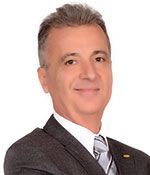
Khaled Awad, ACI Past President
Khaled Awad, is the Chairman and Founder of ACTS, a material testing and geotechnical consulting firm based in Beirut, Lebanon, and operating in Qatar, Saudi Arabia, Kuwait, Oman, India, Rwanda, and several other countries of the Middle East and Africa. Awad is the past president of the American Concrete Institute (ACI), making him the first and only non-American to assume this post since the establishment of ACI in 1904. He is still an active member of ACI, serving on Certification Programs Committee, International Advisory Committee, ACI Board Committee Chairs Committee, and the International Certification Subcommittee, of which he is a past chair, and has been recently reappointed as a Trustee of the ACI Foundation. He is also a member of many ACI technical committees and received the ACI Henry L. Kennedy Award in 2007. Awad started his career in Abu Dhabi in 1985 and has been a UAE resident since then. He worked in the real estate and construction industry in the Arabian Gulf for more than 35 years. He currently sits on the board of several firms in the United states and the Middle East. He was the Founder and CEO of various companies, dealing with the supply chain and information technology side of the industry, as well as the development of large-scale projects. He is currently the CEO of BuildAct FZ LLC in Dubai and Metallurhy and Drilling FZE in Sharjah. Awad was the Founding Director of Property Development at the Masdar Initiative in Abu Dhabi. Masdar is a multi-faceted initiative advancing the development, commercialization and deployment of renewable and alternative energy technologies and solutions. He oversaw the development of emission free Masdar City, the world’s first development aiming to become carbon–neutral. He received his BE in civil engineering from the American University, Beirut, Lebanon, and his MA in business administration from the Lebanese University, Beirut, Lebanon. Awad is also a member of the American Society of Civil Engineers (ASCE) and ASTM International, and a Fellow of the UK Institute of Concrete Technology.
Presentation: ACI PRC-130-19: Report on the Role of Materials in Sustainable Concrete Construction

Sven-Henrik Norman, Corporate Product Manager, Mapei
Corporate Product Manager RE-CON line. With Mapei since 2017. 30 Years experience in the construction industry. Product manager and Sales manager positions in Nordic and global companies focused of Mining and Quarry equipment, Concrete and Asphalt production.
Presentation: Mapei RE-CON line -- Products and Solutions for Increased Materials Circularity in Ready-Mix Concrete Production
Mapei have developed products and solutions that can help concrete producers reduce their waste streams of returned concrete and truck washout slurry New innovations using dry technology that represents an alternative to conventional wet concrete reclaiming systems will be presented. In addition, developments in liquid admixture technology that promote the use of higher amounts of demanding raw materials like recycled or manufactured aggregates will be highlighted in the presentation.
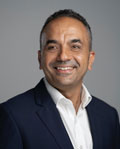
Tarek Emara, MSc, ICIOB, ASQ-CMQ/OE, MACI
Tarek Emara is a highly accomplished civil engineer with over 23 years of experience with GCC, specializing in delivering exceptional projects in the construction industry. He graduated with his degree in civil engineering in May 2000 and further expanded his expertise by receiving his MSc in construction management in June 2008. Through his extensive knowledge and research skills, Emara has consistently added significant value to international contractors and project management companies throughout his distinguished career.
In addition to his academic achievements, Emara has earned various prestigious certifications, including the Certified Quality Manager/Operational Excellence from the American Society of Quality (ASQ) and an Incorporate Membership from the Chartered Institute of Building (CIOB). He also received EFQM training from the Department of Economic Development (DED), Dubai, and completed numerous training schemes from Bureau Veritas, covering the ISO standard. He is also a member of the ACI UAE Chapter and a Senior Excellence Assessor with DED.
Emara’s career journey started in 2000 as a Site Engineer, overseeing waterworks projects worth 820 million USD in the city of Abu Dhabi. He then served as Senior QA/QC Engineer for the prestigious Palm Jumeirah Vehicular Tunnel Project from 2005 to 2007. Joining KBR in 2007 as a Quality Manager, he contributed to critical projects, including district cooling plants and main pipe networks. Since 2009, he has been a driving force at China State Construction Engineering Corporation Ltd., where he joined as a Project Quality Manager and rapidly progressed to the position of QAQC Director.
Presentation: Standardization for Concrete Work
To guarantee the quality of concrete work, it is essential to establish a shared understanding among all stakeholders: developers, engineers, consultants, and contractors. Therefore, this session offers a chance to illustrate how ACI is a valuable source of industry guidelines for quality assurance and control in the production and delivery of concrete work.
This session will demonstrate the relevant standard that guides various processes for production and delivery, such as the concrete raw material, design mixture, testing, batching, mixing, and pouring of concrete.
The applicable standard that directs various procedures for the production and delivery of concrete will be showcased, including aspects such as raw material selection, mixture design, testing, batching, mixing, and pouring of concrete.
Fostering such awareness is crucial to enhancing the understanding of the standard, thereby achieving more effectively regulated outcomes.
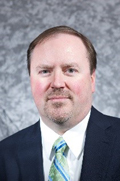
Dean Frank, P.E, Executive Director, NEU: An ACI Center of Excellence for Carbon Neutral Concrete
Frank currently serves as the Executive Director of NEU: An ACI Center of Excellence for Carbon Neutral Concrete. He previously served as Principal / Consultant for Dean Frank Associates, LLC, Director of Quality & Sustainability Programs at the Precast/Prestressed Concrete Institute (PCI), and Director of Technical Services at the National Precast Concrete Association (NPCA). He has been an active member of related industry committees, including ACI, ASTM International, PCI, and the International Federation for Structural Concrete (FIB) for over 20-years. He obtained his MS degree in structural engineering from the University of Colorado at Boulder and is a registered Professional Engineer in Colorado and Indiana.
Presentation: An Overview of NEU: An ACI Center of Excellence for Carbon Neutral Concrete and its Validation Program
This presentation will provide a brief introduction to NEU: An ACI Center of Excellence for Carbon Neutral Concrete, which was established by the American Concrete Institute to collaborate globally to drive education, awareness, and adoption of the use of carbon‐neutral materials and technologies in the built environment. The presentation will also provide an overview of the Validation/Verification program, which is currently being launched by NEU. How to drive awareness, education and adoption of carbon neutral materials and technologies will be also discussed in this session.

Emilio Minoru Takagi, Technical Director, Penetron International
Activities include: International Technical Director of PENETRON Global in New York - USA;Director of Courses at Brazilian Concrete Institute (IBRACON) 2023;
São Paulo Regional Delegate of ALCONPAT Brasil; Member of the editorial committee of IBRACON's Concreto & Construções Magazine; Secretary of the technical committee CT 501 “Concrete watertightness” of ABNT CB18/CB22; PhD Candidate and Master in Sciences at the Technological Institute of Aeronautics (ITA) in Aeronautical Infrastructure Engineering; Civil Engineer from the Polytechnic School of the University of São Paulo (EPUSP). He is currently a specialist professor at the Institute of Technological Education De Luca Daher (Idd) and Ipetec and was Technical Manager and Product Manager at MC-Bauchemie Brasil from 1996 to 2018. He has over 30 years of experience in Civil Engineering, with an emphasis on Products and Systems for the Protection and Repair of Concrete Structures in tunnels and sanitation since 1993, working mainly on self-healing concrete and antimicrobial concrete.
Presentation: Crystalline Waterproofing Protection Technique Used in Latin America's Longest Brazil - Paraguay Integration Bridge
Concrete bridge maintenance and protection of the underlying concrete structure of the deck from deterioration, especially corrosion of steel, is a priority, Crystalline waterproofing is one of the cost-effective techniques for protection of highway bridges concrete members and are intended to prevent or minimize deterioration of the concrete.
The initial April 2023 opening of the Integration Bridge, connecting Brazil with Paraguay, crystalline waterproofing materials was specified to protect the bridge’s concrete deck structures from deterioration, a topical crystalline waterproofing slurry was applied to all the joints of the consolidation plates of the bridge deck, a crystalline waterproofing admixture, was used in the underlying concrete plates, and, a spray-on liquid sealer, was sprayed over the entire bridge deck as a final coating before hot asphalt pavement.
This presentation addresses typical problems and, providing guidance to engineers and maintenance staff activities include sealing, crack repair, and other minor repairs intended to prolong functionality of bridge members specified for the Integration Bridge, the longest in Latin America, with 760 m (2,500 feet) long with a free span of 470 m (1,550 feet).

Stephan Mansour, BSc, ECKM
Associate Consultant
Stephan Mansour has worked 12 years in the information technology sector and 17 years in construction. He has held positions ranging from project, account, and knowledge management to director of business development. Mansour has a specialty in construction digitization and supports the adoption of innovative technology. He focuses on additive manufacturing in construction, which enabled the realization and completion of a partially three-dimensionally-printed house in Saudi Arabia in 2018 for the Saudi Ministry of Housing. He advises global corporations and entrepreneurial establishments to successfully implement the means necessary to transform business operations and disruption in construction. He is currently leading construction standards initiatives with JG80 under ISO/ASTM as Vice Chair of ASTM International Subcommittee F42.07.07.
Presentation: Additive Construction—Latest Sector Developments and Standard Initiatives
ASTM is undertaking a critical proactive role in additive construction and more broadly in the construction sector spanning, from authoring a roadmap for construction digitalization to the development of additive construction standards. The presentation will outline ASTM’s efforts with special focus on the following:
-
- The roadmap for construction digitalization as presented in a report to the National Institute of Standards and Technology (NIST).
- Additive construction industry analysis.
- ASTM’s significant efforts through Subcommittee F42.07.07 and collaboration with the International Organization for Standardization (ISO) in developing and publishing critically needed additive construction standards.